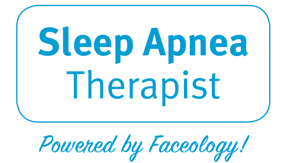Falling asleep while driving seems like an unlikely occurrence but sadly, it isn’t . As the CDC states, “Drowsy driving is a major problem in the United States. The risk, danger, and often tragic results of drowsy driving are alarming.”
Alarming is the right word! Falling asleep at the wheel is a frightening thought, and it’s all the more so when it becomes clear how widespread the problem is.
When It Comes To Falling Asleep While Driving, The Numbers Don’t Lie
The NHTSA (National Highway Traffic Safety Administration) estimates that driving while tired was responsible for 72,000 crashes, 44,000 injuries, and up to 800 deaths in 2013.
It’s worth noting that research indicates that these figures may be drastically underestimated. It’s estimated that up to 6,000 fatal crashes may be caused by drowsy drivers every year. This would put the total number of accidents caused by drowsy driving or falling asleep while driving to be much higher than the NHTSA estimates.
According to the National Sleep Foundation (NSF), data compiled from countries that have more consistent crash reporting than the U.S (including Australia, England, and other European nations), drowsy driving represents 10 to 30 percent of all their reported crashes.
The NSF’s 2000 Sleep in America poll indicated that only about 1 in 5 drivers pulled over to nap when they were drowsy. The same poll indicates that when driving drowsy, 42% of drivers said they became more stressed, 32% said they became impatient, and 12% stated they drive faster. All of which contributes to increased risk of an accident on the road.
Fatigue behind the wheel affects commercial drivers as well. A University of Pennsylvania study found that almost one-third of commercial truck drivers have mild to severe sleep apnea.
Drowsy Driving vs. Drunk Driving
Few people would consider driving while sleepy to be as bad as driving under the influence of alcohol but it can be.
Sleep deprivation can have very similar effects on the body as those experienced after drinking alcohol. According to the National Sleep Foundation, being awake for 18 hours has the same effect as having a blood alcohol level of 0.05 (0.08 is considered legally drunk). Being awake for 24 hours straight has the same effect as having a blood alcohol level of 0.10.
What’s The Sleep Apnea Connection?
As I pointed out in this article, sleep apnea is a serious health condition that has a number of symptoms including daytime sleepiness and overall fatigue. It’s one thing to have a bad night’s sleep once in a while but untreated sleep apnea is much like having a bad night’s sleep every single night.
That kind of pervasive and chronic sleepiness can definitely translate into increased risk at the wheel. A recent study found that sleep apnea sufferers were at a substantially higher risk of being involved in an accident when they were driving compared to people without this sleep disorder. They were 2.5 times more likely in fact!

My patients with sleep apnea often tell me that fatigue and daytime sleepiness are just a part of their lives. They report that “brain fog” is common. This symptom can be difficult to live with in general but it can be dangerous or even deadly if it manifests while driving. So many of us spend a lot of time driving, which means the overall risk is increased.
So What Can Be Done?
When it comes to sleep apnea and sleep disordered breathing, the first step is always getting a clear diagnosis from a doctor that specializes in sleep medicine. To find out exactly what’s going on with your sleep, you’ll need to have a sleep study. These can be done in a lab or at home.
Once you have the results of the study and a diagnosis, you’ll be able to investigate the options and find a treatment plan that’ll work for you. As always, I urge anyone who has sleep apnea sleep or sleep disordered breathing to look into myofunctional therapy exercises. These exercises have been proven by research to help alleviate the symptoms of sleep apnea.
The good news is that treatment is possible! Which means that falling asleep while driving could become a far less risky possibility.

